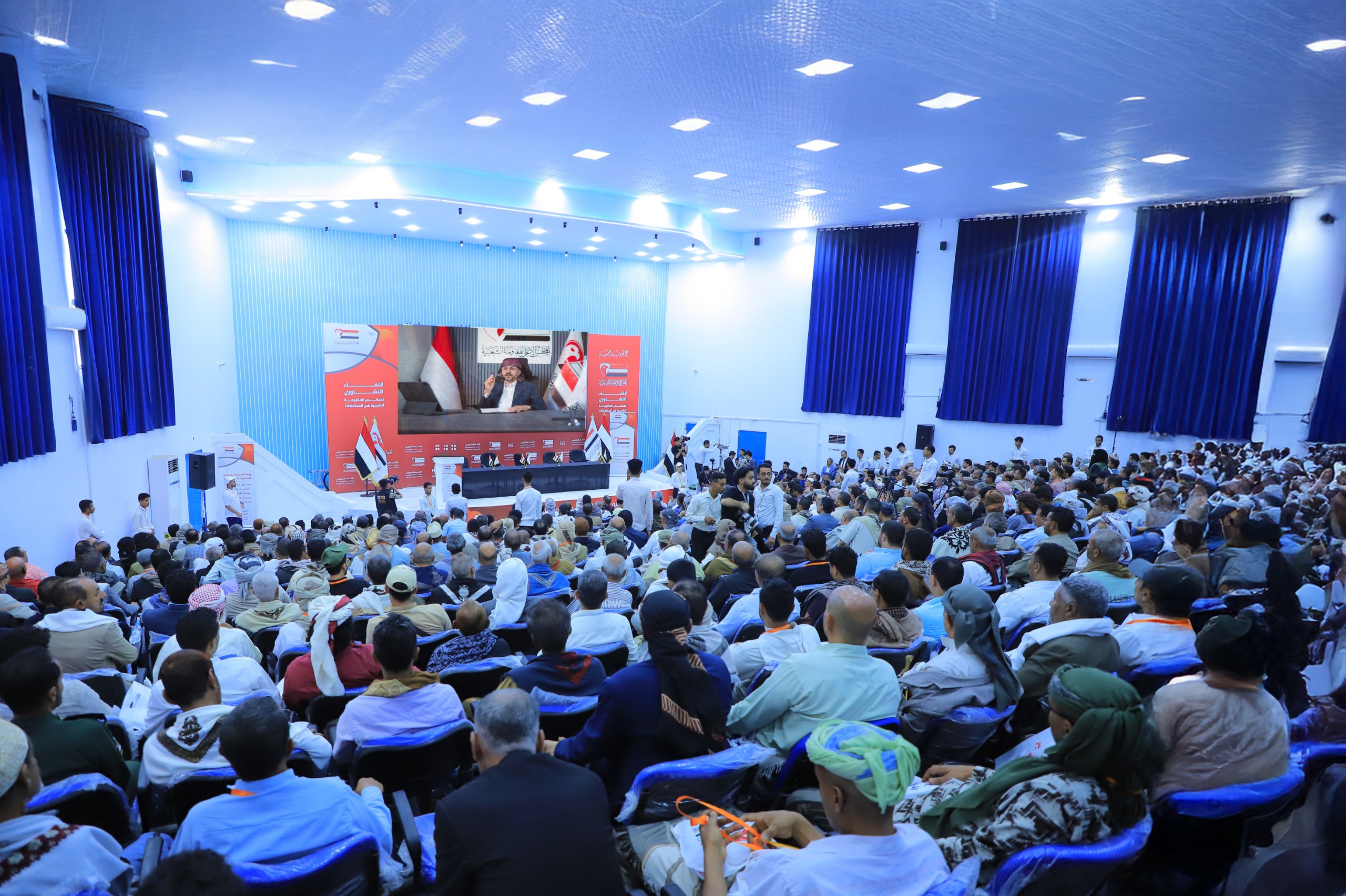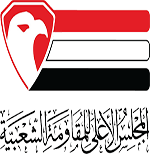An expanded consultative meeting of the Popular Resistance Councils in the Yemeni governorates
2025-05-22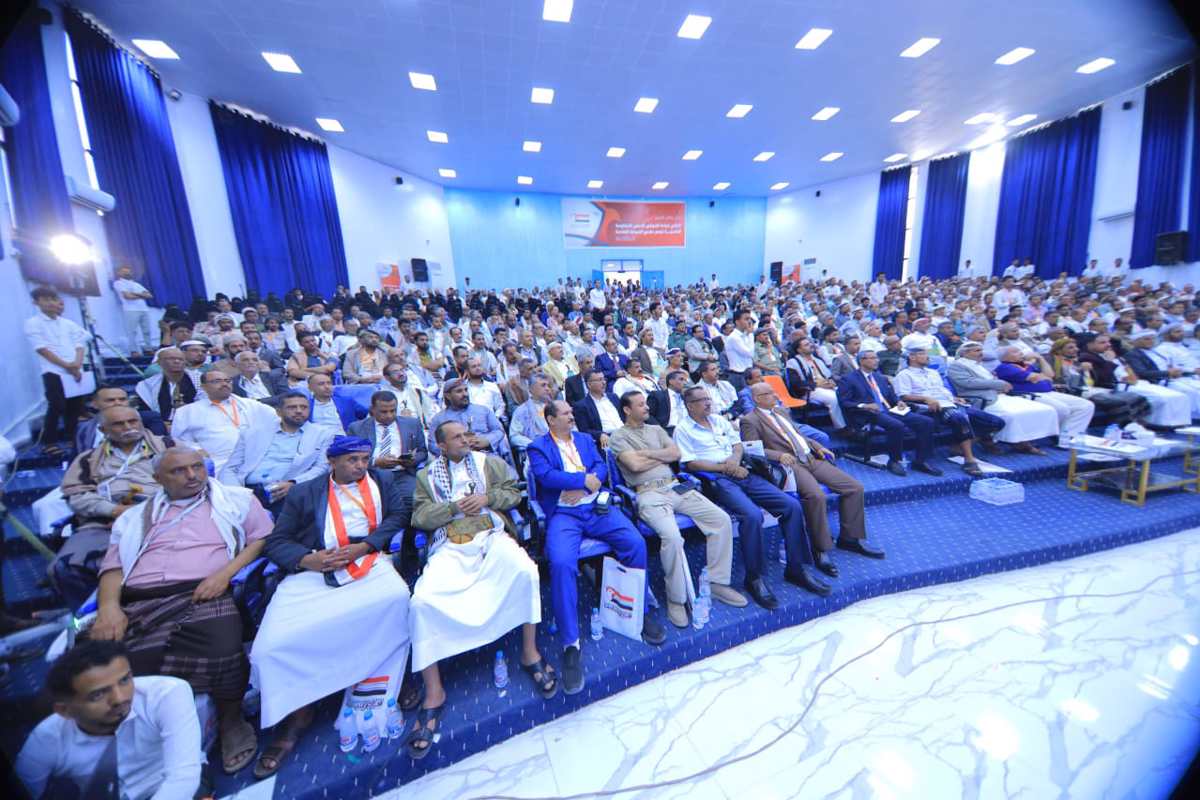
Taiz: Exclusive
In a meeting considered the first of its kind since the outbreak of the war in the city of Taiz, and attended by local authorities, the Popular Resistance Councils in the Yemeni governorates held a consultative meeting organized by the Supreme Council of the Popular Resistance, which includes within its organizational structure the Popular Resistance Councils from various governorates. This meeting reflects the Popular Resistance's awareness of the importance of "breaking the stagnation that has overshadowed the scene and transformed it into a state of confusion and loss," according to a statement by Mohammed Azzam, Secretary-General of the Supreme Council of the Popular Resistance.
The head of the Supreme Council of the Popular Resistance, Sheikh Hamoud Saeed Al-Mikhlafi, attended the meeting and delivered a speech via video conference. He called on the Popular Resistance Councils in the governorates to explore the best mechanisms to adopt in the next phase to activate the role of the resistance and elevate it to the desired level of ambition that reflects the Yemeni people. Pointing to the opportunities available for liberation battles, he emphasized that whenever they appear on the horizon, "the people rise up to express their readiness and mobilization within the framework of the Supreme Council of the Popular Resistance, to support the national army." He noted that citizens in the areas controlled by the militia are eagerly awaiting the liberation battle.
He said that the Supreme Council of the Popular Resistance is committed to field and political action that enhances the qualitative capabilities of the popular resistance and secures the necessary equipment for the inevitable confrontation with the coup plotters. He emphasized that absolute faith in the people's right to freedom is the foundation of the battle to restore the state.
He recalled the fierce battles fought by the popular resistance inside and around the city of Taiz in its early days, which were crowned with victory "despite the scarcity of resources and inexperience, and despite the striking force and thirteen brigades that attacked and besieged Taiz from all directions, supported by death squads and special units of the coup plotters."
The head of the Supreme Council of the Popular Resistance emphasized that the ultimate solution to Yemen's problems, including the security risks surrounding the region and the Arab world, and threats to international navigation, lies in ending the coup and disarming the Iranian-backed terrorist Houthi militias. Mohammed Azzam had stated that a sense of responsibility requires the resistance to complete the liberation project. The Secretary-General of the Supreme Council of the Popular Resistance added that the legitimate government will not be able to accomplish this goal without the support and broad backing of the people. The final statement of the consultative meeting of the Popular Resistance Councils, addressing the Red Sea crisis, made clear that "any patchwork solutions or limited operations will only complicate and exacerbate the situation."
The final statement highlighted the vital and effective role of the Popular Resistance and the Supreme Council of Resistance in the battle for liberation, the restoration of the state, and the end of the coup, stating that the Supreme Council has "a legitimate and inherent right to contribute to determining the fate of the nation, whether through peace or war, in defense of our people's aspirations and hopes for freedom, dignity, and justice."
The meeting reviewed the outcomes of the Popular Resistance Councils, which were prepared and prepared over a full month of discussions and workshops at the provincial and regional council levels, to develop realistic visions for achieving the national goal of completing the liberation of the country.
The Popular Resistance Councils in the provinces affirmed their readiness to support the national army in completing the liberation battle.
The Supreme Council of Resistance called for creative initiatives that would contribute to liberating the country from the Houthi group. It also called on all political forces, national components, and armed formations to review their positions and engage in a national alignment that would enable From the battle to end the Houthi coup, the minimum for a national partnership befitting the greatness and sacrifices of the Yemeni people is achieved. The Popular Resistance Councils called for an escalation of organized resistance action in line with the changing political and military landscape, and for enhanced coordination and integration among all resistance councils in Yemen.
Engineer Abdul Karim Al-Aslami, head of the political body of the Supreme Council of the Popular Resistance, stated that the long years of war have proven that the political solution the United Nations is working on, given the lack of conditions for its implementation, is nothing more than a continuation of the chaos that prevails in Yemen at this stage. He added that the solution lies in adopting disciplined, targeted, and adequately supported military action to achieve its goals, which are fully consistent with the references and with what the Yemenis and the international community have approved. He emphasized that Yemen's salvation depends on the strength of its people and their ability to regain the initiative and neutralize the dark forces that have been able to control its resources, not through their own capabilities, but through the inaction and complicity of those near and far.
The consultative meeting reviewed the papers of the Popular Resistance Councils in the governorates, which included their vision for the next phase in various fields, both at the internal level of the Supreme Council of the Popular Resistance and at the level of the Yemeni crisis in general. In a speech by the local authority, Major General Abdul Karim Al-Sabri, Deputy Governor of Taiz for Defense and Security Affairs, welcomed the leaders of the popular resistance coming from various Yemeni governorates to the city of Taiz, which he said broke the Houthi hereditary, priestly project when the popular resistance erupted under the leadership of Sheikh Hamoud Saeed Al-Mikhlafi. He added that the national army was established through popular resistance.
For his part, Major General Mohsen Khosroof, a member of the Advisory Board of the Supreme Council of the Popular Resistance, said, "I feel overwhelming happiness because I am in my homeland, in the heroic governorate of Taiz, and in the city with the greatest presence. Before me are men and leaders from all over Yemen, from Sana'a, Hodeidah, Taiz, Hajjah, Al-Mahwit, Aden, Shabwa, Hadhramaut, Al-Dhale'e, Ibb, Al-Jawf, Abyan, Marib, and all the governorates." He wished success for the consultative meeting and the resistance action.
In the women's speech, Awsan Mohammed Saeed spoke about the struggle of Yemeni women throughout history and political turning points, and in their resistance to the Houthi militia, emphasizing that there can be no victory in this battle without the participation of women. The government was called upon to unite with the people and eradicate the sources of corruption. It urged political, intellectual, and economic elites to unify ranks, avoid side battles, and build awareness as a basis for defeating the terrorist Houthi militia coup.
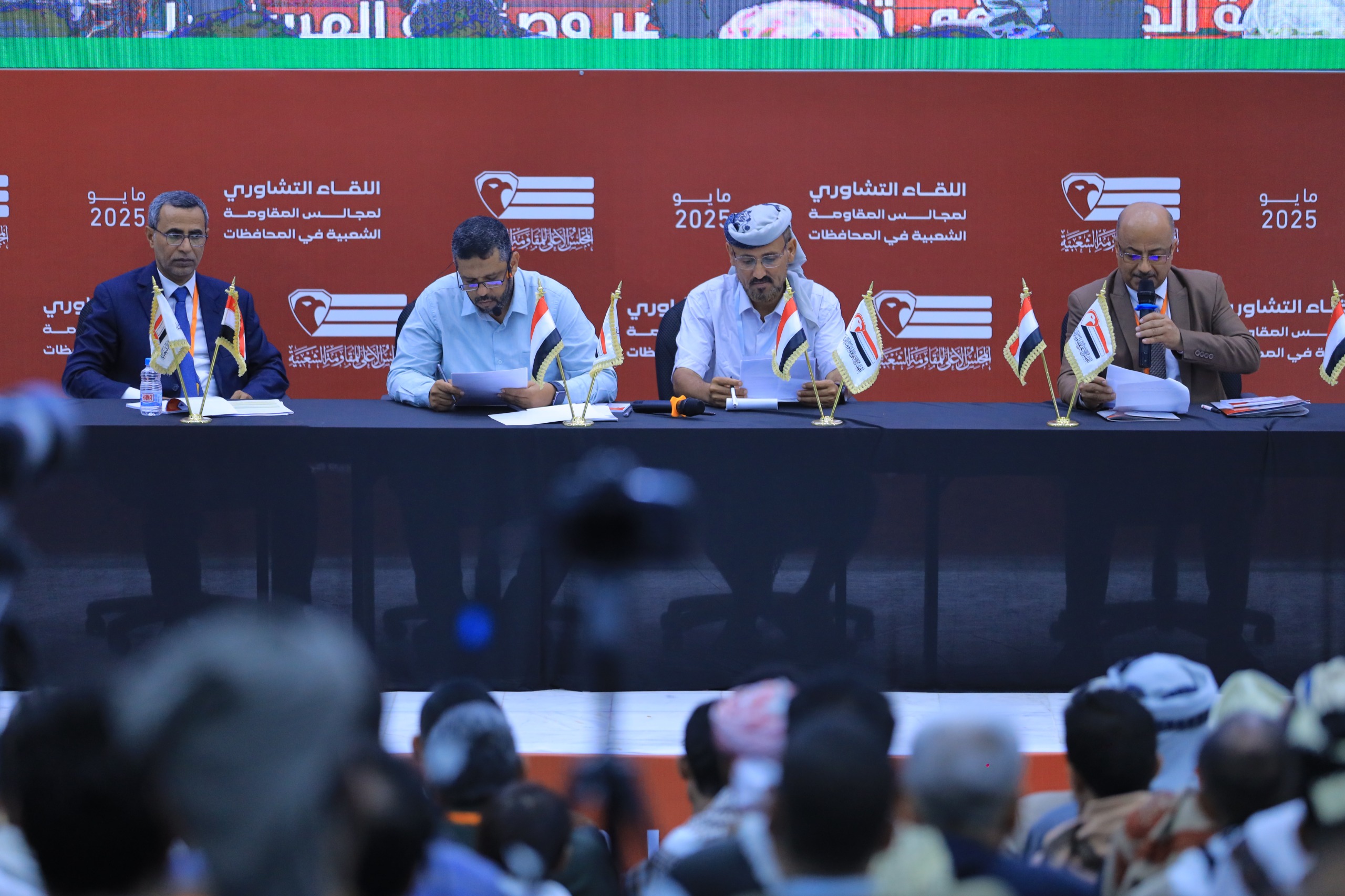
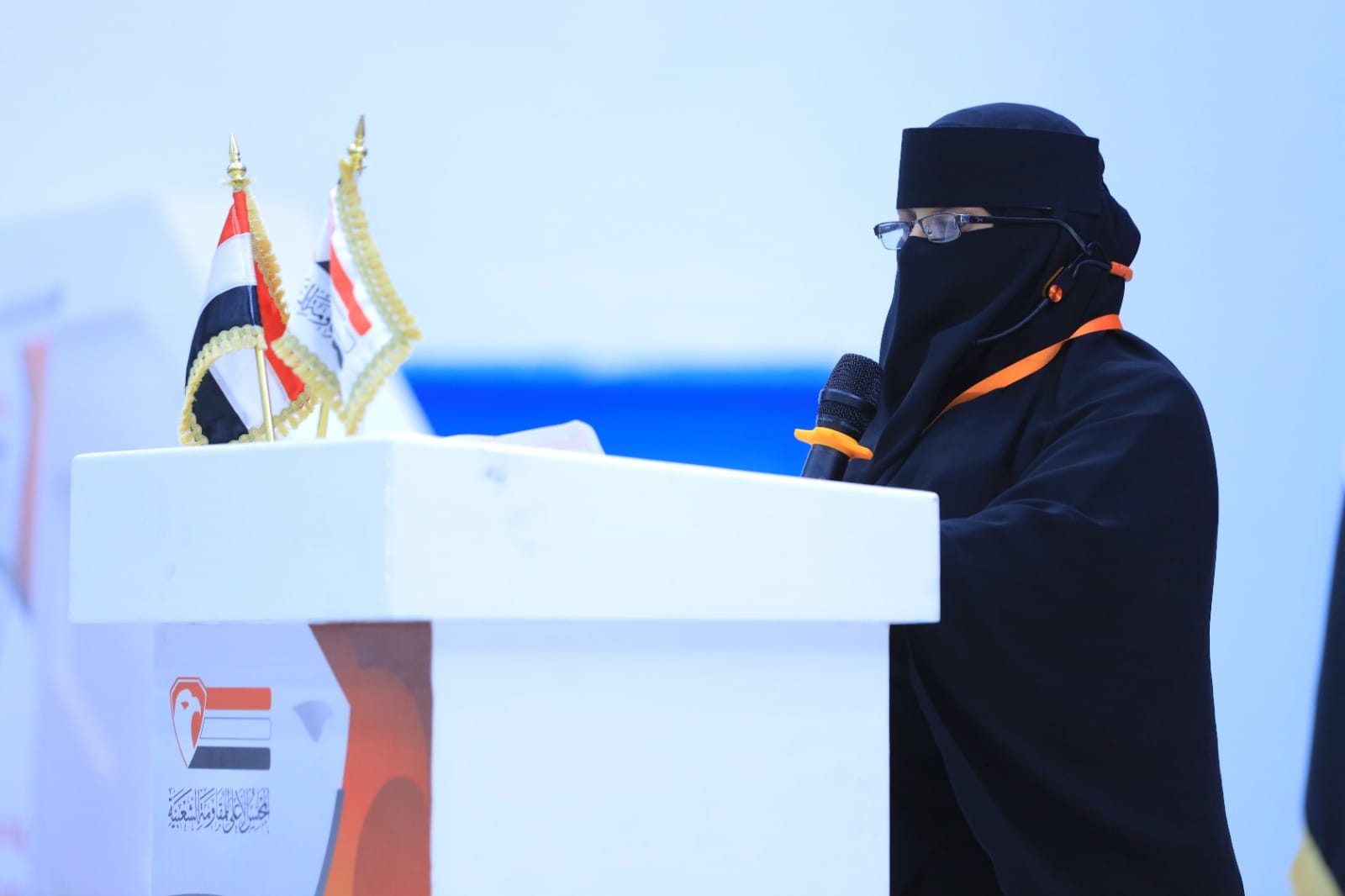
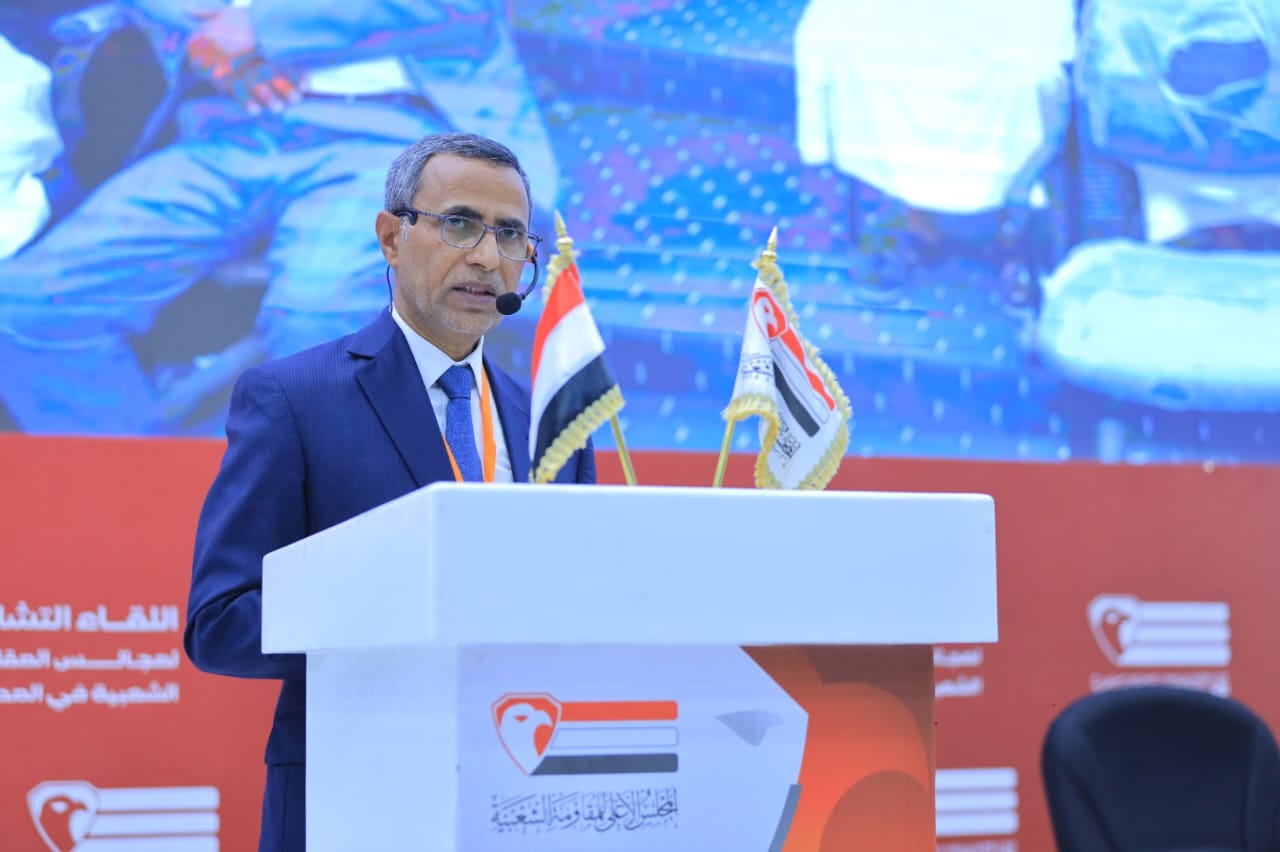
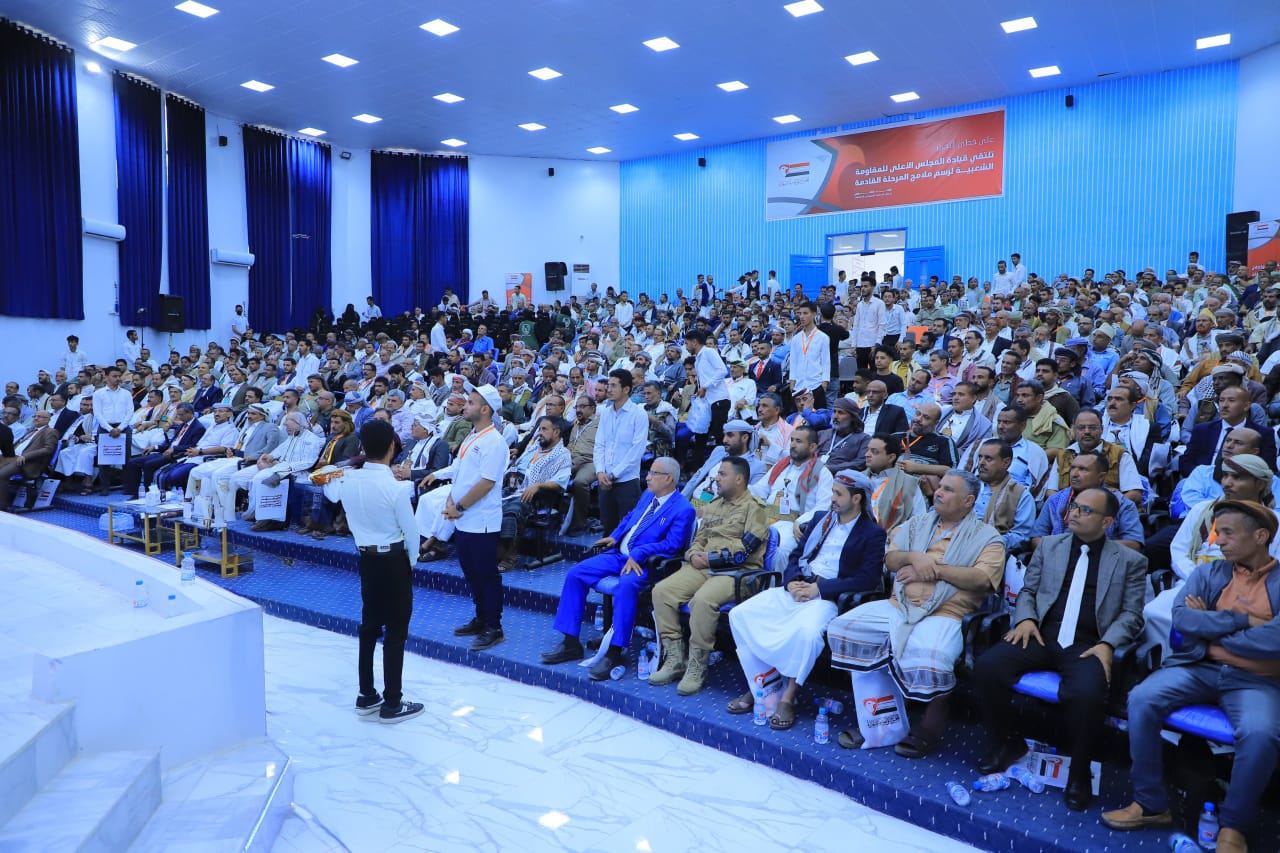
.jpeg)
